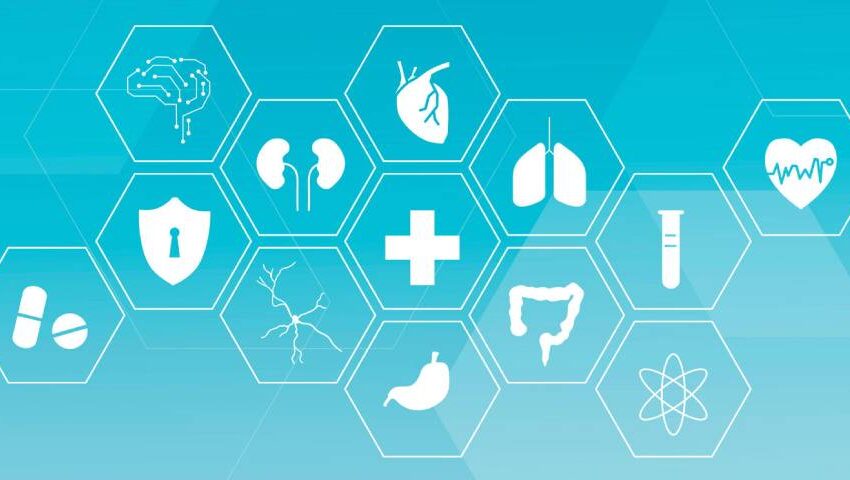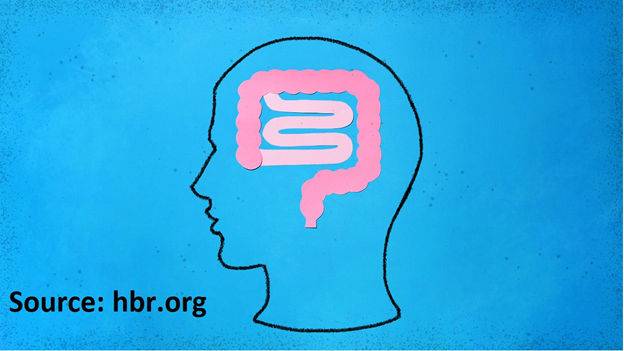
- 16/10/2021
- Dr. Samrat Jankar
- 0 Comments
- Blog
How can overall gut health affect your physical & mental health?
Gut health refers to the physical state of the gastrointestinal tract and how it functions in various ways. The GI tract plays a variety of roles and has a variety of effects on the human body.
There is a link between the gastrointestinal tract and immunity and emotional stress and chronic disease. Furthermore, the environment, food, and other behavioral patterns can influence gut health.
Let’s look at how gut health affects mental health and how gut health influences anxiety and depression:
Experts in gut health know the link between gut health and the brain and other body parts. Experts go into great detail about gut health, from gut-wrenching pain to nausea, and how these feelings can cause symptoms in the gut. Emotions like depression, anger, and anxiety affect the gastrointestinal tract.
Gut health, eating habits, and habits are all linked to the brain. The reason for this is that the gastrointestinal tract and the brain are intertwined. The stomach and intestine receive commands from the brain. For example, just thinking about eating causes the stomach to secrete juices before the food arrives.
A troubled brain can send signals to the stomach in the same way that an uneasy stomach can send a password to the brain to react to the same situation. As a result, depression, stress, and anxiety can cause gut or stomach health problems.
Gut bacteria is essential for a person’s physical and mental well-being. They can help alleviate some symptoms of anxiety and depression, but they can also exacerbate them. The gut microbiome is an ecosystem made up of trillions of bacteria cells that live in the colon. It allows nutrients to enter the body, and the activities can have an impact on the brain.
When you’re stressed, the health of your gut microbes affects your body. Your overall mood may be affected if there is an imbalance. The microbiome should be diverse, and this diversity aids our bodies in maintaining a healthy balance. As a result of the imbalance, opportunistic microbes (Dysbiosis) will multiply, causing inflammation.
This inflammation has the potential to cause depression. These gut-bacterial health effects may influence the immune system. The microbiome must be diverse to prevent inflammation and restore gut health side effects. Diet is one way to provide the body with appropriate gut health enzymes while also increasing the diversity of microbes.
The human body has good bacteria that aid digestion and maintain physical and mental health. An imbalance between these bacteria can cause bodily diseases such as:
- Ulcerative colitis
- Crohn’s disease
- Irritable bowel syndrome (IBS)
Some bacteria in your gut can cause a chemical reaction in your liver that results in the formation of TMAO (Trimethylamine-N-oxide). It has the potential to generate high cholesterol levels in your blood vessels. Many cases of TMAO can lead to chronic kidney disease. In such cases, you require immediate medical attention.
A TAMO overabundance can even cause heart disease. This chemical has the potential to clog your arteries, raising your risk of a heart attack or stroke. Bacteria in the liver form a chemical reaction when you eat foods like eggs and red meat.
The gut microbiome is critical for good HDL cholesterol and triglyceride levels. Lactobacilli, in particular, helps to lower cholesterol when taken as a probiotic. The gut microbiome also keeps an eye on blood sugar levels and aids in their management.

How can the gut microbiome be altered?
The gut microbiome has been present in your body since birth. Your surroundings and eating habits influence it. Experts believe that changing your eating habits and location can cause a shift in your microbiome.
Some foods that can help you change it include:
Probiotics:
probiotics are beneficial bacteria found in various foods and are already present in your body. They can act as an additional source of good bacteria in your intestines, helping to keep everything in check. It strengthens your immune system and may improve your digestive health. Probiotics are not all created equal, and their effectiveness varies depending on who uses them.
Prebiotics:
Prebiotics are probiotics that are present in certain foods. It boosts the growth of beneficial bacteria in your gut and helps your body maintain calcium levels. They are present in both vegetables and fruits. It consists of:
- Bananas
- Onions
- Garlic
- Leeks
- Artichokes, no. 5
- Asparagus
- Soybeans
They are present in foods that contain whole wheat.
Symbiotic:
Probiotics promote the growth of beneficial bacteria in the gut. These probiotics last longer when you supplement them with prebiotics. As a result, a symbiotic relationship exists between the two.
The goal is to ensure that the probiotics remain active for a more extended period. Incorporating both a probiotic and a prebiotic into one’s diet can be done in various ways, such as stir-frying asparagus with tempeh.
It is critical to take complete care of your gut health. It can aid in the maintenance of excellent physical and mental health.
